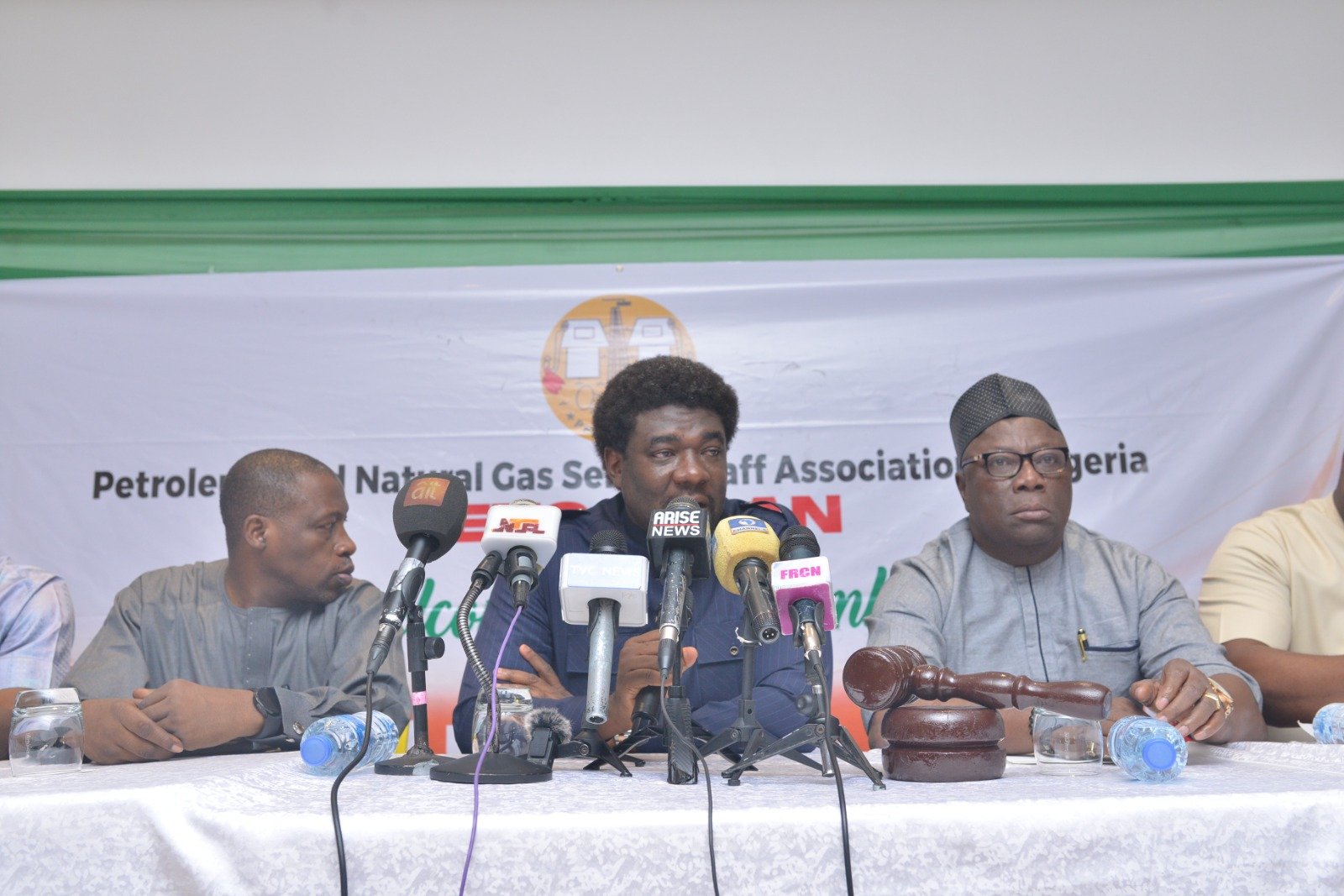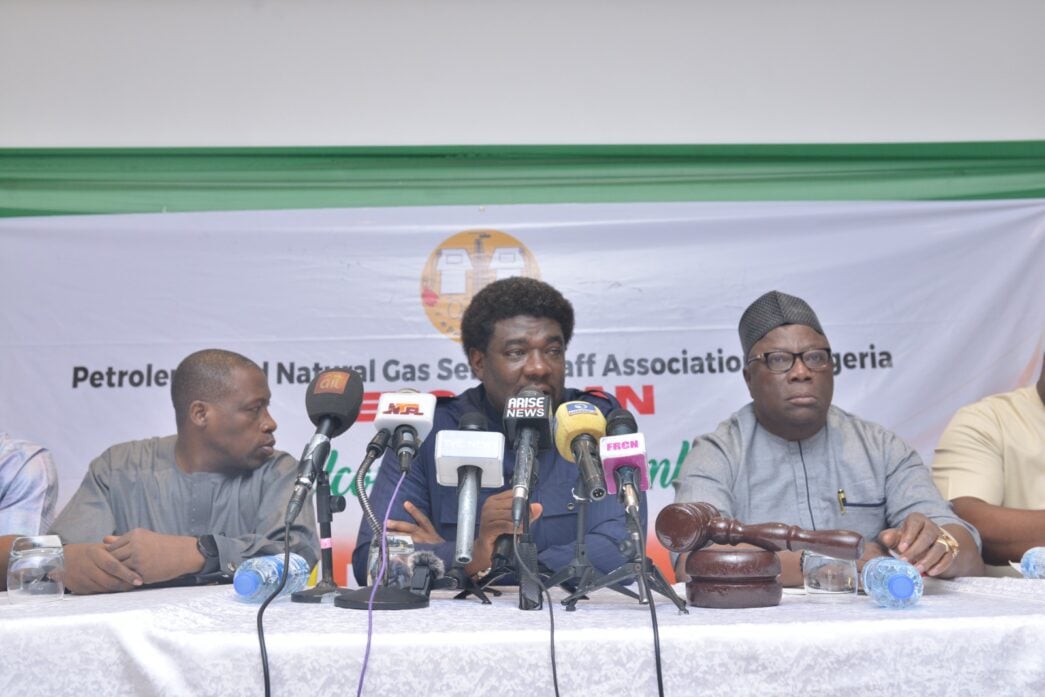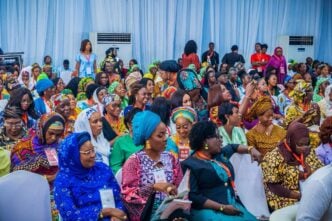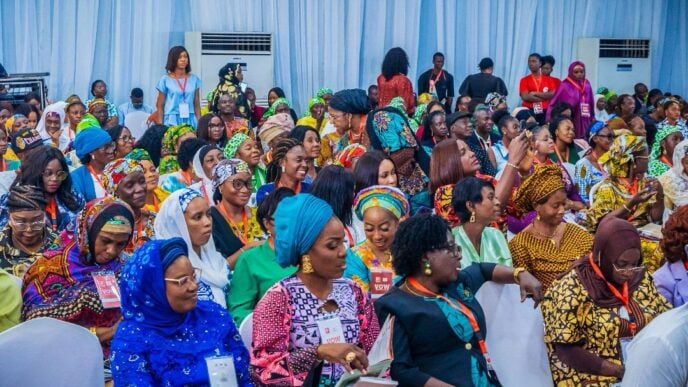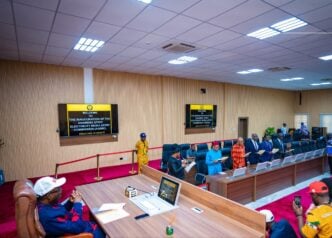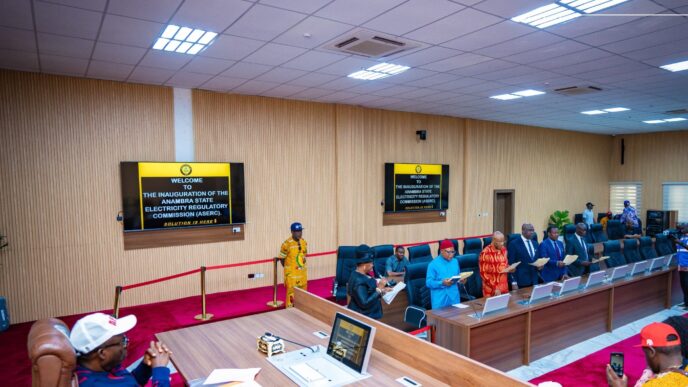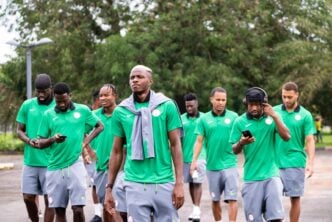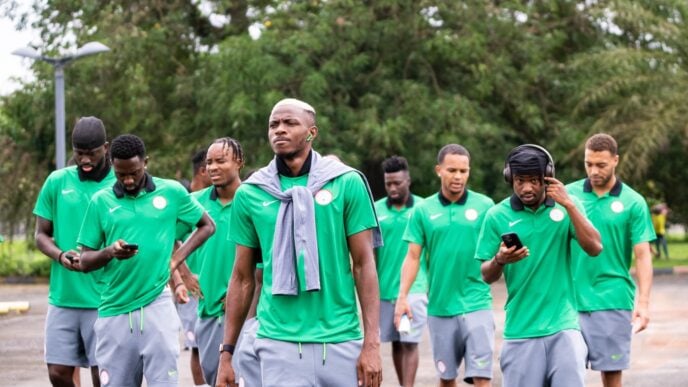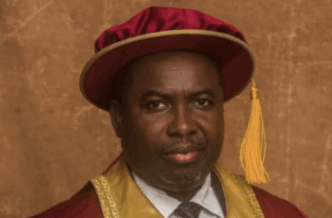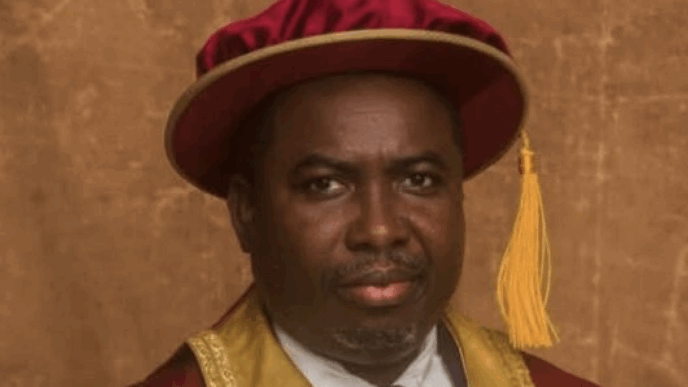Festus Osifo (M), PANGASSAN president speaking during a press conference | File photo
The most recent conflicts between Dangote Petroleum Refinery and Petrochemicals and industry trade unions, particularly Petroleum and Natural Gas Senior Staff Association of Nigeria (PENGASSAN) and Nigeria Union of Petroleum and Natural Gas Workers (NUPENG), were successfully mediated and resolved by the government, thankfully, but vital lessons and warnings need to be robbed in thoroughly. The simple reason being the possibility of recurrence soon or later, going by some past experiences.
The rationale for unionisation shouldn’t be in doubt. And the very noble origins of the practice of workers coming together to fight for their common interests lend themselves to favourable scrutiny. With the advent of Industrial Revolution in Europe around 1760 came the deepening and institutionalisation of trade unionism. Large factories sprang up and engaged thousands of workers, many of whom were exposed to diverse indignities and exploitations. The existence of capitalists whose overriding interests centred around raw money-making and who relied largely on thousands of hapless personnel meant that developing kindred bonding amongst the working class was inevitable. After all, survival has always been mankind’s default mode. And that is often better prosecuted jointly. What has now been established as the aluta spirit across the world’s workforce dates way back indeed.
Flashforward 1912 Nigeria. The first formal labour organisation originally known as Southern Nigeria Civil Service Union entered the scene. After the nation’s amalgamation two years later, “southern” was dropped from the name for apparent reasons. The 1938 promulgation of the Nigerian Trade Union Act further formalised the united front of Nigerian workers. The amendments of the law especially in 1973 and 2005 were aimed at redefining and repositioning the relationships that existed between employers and employees both in the public and private sectors. So, labour-related statutes, issues and activities have always taken the centre-stage under every dispensation of our national life, be it colonial, civilian or military.
Labour unions have even played crucial roles outside their primary duties, sometimes to withstand repressive governments in defence of the democratic model and, at other times, to shoulder the aspirations of the generality of the people for decent living and a more functional society. Nigerian workers and their leaders had their flaws, no doubt, but the courage and selflessness with which they championed those causes endeared them to the masses at critical moments when, as it happened many times, tiers of government, particularly legislatures which ought to press for people’s welfare, fell flat on their job. That way, NUPENG, for instance, in the days of its legendary Secretary General, Frank Kokori, became one of the heroes of the struggle to end dictatorship and usher in the current republic. The impact of unionism on the country was that robust.
Advertisement
It’s clear that the present bosses of the unions need to guide them along such patriotic and inclusive lines. True, they were on track in standing up for the staff of Dangote Refinery who were initially sacked but they went way off the mark in doing so without considering the consequences of their actions on the nation’s overall socio-economic wellbeing. While the strikes they ordered lasted, at least 283,000 barrels of crude oil and 1.7 billion standard cubic feet of gas were reportedly lost daily. The country’s ever anaemic power supply suffered a 20 percent shortfall. The refinery was denied crude and gas. And the downstream component of the volatile industry recorded price increases, scarcity and other hiccups.
A statement from the Nigerian National Petroleum Corporation Limited (NNPCL) captures the results of that misapplication of labour power succinctly: “The disruptions pose systemic risks to energy supply, personnel and asset security and the wider economy…. A sustainable solution is required to prevent such an extensive interruption of the overall energy security infrastructure and to safeguard national energy security and stability”. I agree with the underachieving company on this occasion.
The leaderships of PENGASSAN and NUPENG should henceforth be more circumspect in their dealings. Workers are generally suspicious of capitalism as they often hold the short end of the stick. But the Dangote matter should be viewed differently and accorded a special treatment, literally. Nigerians seem to be accustomed to successive administrations that underperform on many counts. Oil has remained messy for decades, rubbishing government’s efforts. Dangote’s entry into local refining is one game changer that deserves everyone’s encouragement.
Advertisement
Vice President Kashim Shettima’s intervention the other day at the Nigerian Economic Summit couldn’t be better put: “He (Dangote) is not an individual. He is an institution and a leading light in Nigeria’s economic firmament. How we treat this gentleman will determine how outsiders will judge us. If he had invested $10 billion in Microsoft, in Amazon, or in Google, he probably might be worth $70 to $80 billion by now. But he opted to invest in his country, and we owe it to future generations to jealously protect, promote, preserve, and protect the interests of this great Nigerian.” Perish any political and other sentimental insinuations. Not too much to say in support of the largest private employer of labour here.
An unmarked viral social media post also provides a compelling argument: “ASUU is the trade union of the university academic staff in Nigeria but it does not disturb Covenant University, Baze University, JABU, Crescent University, Babcock and all other private universities to allow their lecturers join the union. NURTW is the trade union of road transport workers in Nigeria but you don’t see them go after God Is Good, GUO, Ekesons and the likes, even if they are in the transportation business. Their drivers don’t also join the union. Nigeria Union of Teachers (NUT) is the trade union of teachers in primary and secondary schools but you don’t see them go after Chrisland College, Grange School, Charterhouse Lagos, British International College and tell the teachers to join them. But you think it is ok for Dangote to build a refinery solving all our collective petroleum import problems and, then, allow PENGASSAN to dictate to him… Enough of this nonsense!”
The disenchantment of the populace towards these unions is being further demonstrated by the resurfacing of the video clip of the proscription of both of them by the late General Sani Abacha in 1994 in the heat of the battle to send him away from Aso Rock. Not that most of the persons who have been forwarding it online are nostalgic about his government. But it’s a clear signal that the unionists can have their fingers burnt badly if they stray from the paths carved by their more mature, considerate and well-intentioned predecessors.
Ekpe, PhD, is a member of THISDAY editorial board.
Advertisement
Views expressed by contributors are strictly personal and not of TheCable.

